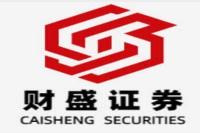Luxury Brand Scandals: When Customer Service Turns Personal – A Deep Dive into the LV Incident and its Implications
Meta Description: Luxury brand reputation, customer service scandals, employee conduct, social media impact, crisis management, retail ethics, LV incident analysis, brand loyalty, consumer trust, public relations.
Imagine this: You're walking into a luxury store, expecting impeccable service and a refined experience. Instead, you witness a scene unfolding that's straight out of a soap opera – a heated confrontation, accusations flying, and the hushed whispers of a scandalous affair involving a seemingly polished brand ambassador. This isn't a plotline from a reality TV show; it's the reality of the recent scandal involving a Louis Vuitton (LV) employee and a male customer in Hefei, China. This incident, fueled by a viral video and swift social media dissemination, catapulted the hashtag #LV柜姐 (LV sales associate) to the top of trending topics. It wasn't just a personal drama; it became a full-blown PR nightmare for a global luxury brand, highlighting crucial vulnerabilities in customer service, employee conduct, and crisis management strategies. This isn't just about a single employee's actions, it’s about the systemic issues within the luxury retail landscape and the ripple effect such incidents have on brand reputation, consumer trust, and the very fabric of the luxury experience. We'll delve into the specifics of this case, analyzing the fallout, exploring the broader implications for luxury brands, and examining the best practices for navigating similar crises. Get ready to unpack this complex situation, because it's far more nuanced than meets the eye. This isn't just a story about a sales associate; it's a masterclass in what not to do when faced with a PR crisis in the age of social media. Prepare to be informed, engaged and perhaps even a little shocked, as we expose the underbelly of the seemingly glamorous world of luxury retail.
The Louis Vuitton Incident: A Case Study in Brand Reputation Management
This incident, which unfolded in a high-end Louis Vuitton store within Hefei's Silver City Mall, began innocently enough. However, a seemingly private matter quickly escalated into a public spectacle, thanks to the omnipresent power of social media. A viral video depicting a heated confrontation between a customer's wife and a female sales associate quickly spread like wildfire across various Chinese social media platforms (Weibo, WeChat, etc.), exposing an alleged romantic relationship between the employee and the customer. The sheer speed and scale of the dissemination highlight the pervasive and often uncontrollable nature of online information flow in today's digital age. The incident undeniably caused significant damage to the LV brand image, raising serious questions about employee conduct, customer service protocols, and the brand's overall response to the crisis.
The immediate aftermath saw a flurry of online discussion, with many expressing shock, disappointment, and even anger at the behavior of the involved employee. The speed at which the news spread underscores the urgent need for swift and effective crisis communication strategies. The luxury market, built on exclusivity and a cultivated image of refinement, is particularly susceptible to reputational damage from such events. The public reaction – a mix of outrage, disbelief, and schadenfreude – serves as a stark reminder of the importance of maintaining ethical standards and implementing robust internal controls within luxury retail environments.
The Fallout: More Than Just a Scandal
The repercussions for LV extended far beyond the immediate fallout of the viral video. The incident prompted widespread discussion about the ethical responsibilities of luxury brands, focusing on workplace conduct and the potential for conflicts of interest. Beyond the immediate PR disaster, the affair also triggered a deeper reflection on the expectations and norms surrounding customer service within the luxury retail sector. This scrutiny includes:
- Employee Training & Oversight: The incident highlighted gaps in employee training and oversight. Luxury brands need to reinforce ethical conduct, professionalism, and the importance of maintaining appropriate boundaries with clients.
- Social Media Monitoring: Effective social media monitoring and rapid response mechanisms are crucial for mitigating negative narratives before they gain significant traction.
- Crisis Communication: A clear and consistent communication strategy is vital to address public concerns and rebuild consumer trust.
- Internal Policies: A comprehensive review of internal policies and procedures is paramount to prevent similar incidents in the future.
The Importance of Crisis Management in Luxury Retail
The LV case serves as a compelling example of the importance of robust crisis management strategies within the luxury retail industry. A well-defined plan, encompassing proactive measures and reactive protocols, is crucial for navigating reputational challenges. This includes:
- Early Detection: Implementing robust social media monitoring systems allows for early detection of potential crises.
- Swift Response: A quick and decisive response minimizes damage control.
- Transparency & Accountability: Open communication and taking responsibility for any shortcomings are key to rebuilding trust.
- Consistent Messaging: Maintaining a consistent and unified messaging across all platforms is critical.
Rebuilding Trust: Lessons Learned
The LV incident underscores the fact that even established luxury brands are vulnerable to reputational damage. Rebuilding trust after a crisis requires a multi-faceted approach:
- Genuine Apology: A sincere and transparent apology can go a long way toward regaining consumer confidence.
- Corrective Actions: Implementing tangible changes to prevent similar incidents highlights a commitment to improvement.
- Engagement with Stakeholders: Active engagement with customers and other stakeholders demonstrates a commitment to transparency and accountability.
- Long-Term Strategy: A long-term strategy focused on rebuilding trust is crucial for sustainable recovery.
Beyond the Headlines: The Broader Implications
This incident isn't isolated. Similar scandals involving luxury brands and employee misconduct have occurred, highlighting a systemic issue within the industry. The pressure to achieve sales targets, coupled with the often blurred lines between professional and personal relationships within a high-pressure environment, can contribute to such incidents. These cases underscore the need for a more holistic approach to employee management and ethical conduct within the luxury sector.
The case also highlights the power of social media in shaping public perception and influencing brand reputations. The speed at which the incident spread and the intensity of the online discussion underscore the importance of proactive social media management and crisis communication strategies. Moreover, the incident raises concerns about the privacy implications of filming and distributing private encounters online, particularly without consent.
Best Practices for Luxury Brands
- Invest in employee training: Provide robust training programs focusing on ethical conduct, customer service, and social media awareness.
- Establish clear policies: Develop and enforce clear policies regarding employee conduct, relationships with customers, and the use of social media.
- Implement robust monitoring systems: Utilize social media monitoring tools to identify and address potential crises early on.
- Develop comprehensive crisis management plans: Create detailed plans to effectively manage and respond to reputational challenges.
Frequently Asked Questions (FAQs)
Q1: What was the final outcome of the LV incident?
A1: The implicated LV employee was dismissed from her position on October 25th. While the exact details remain somewhat private, the swift action taken by the company serves to at least demonstrate a response to the situation.
Q2: What role did social media play in this scandal?
A2: Social media amplified the incident exponentially. The rapid spread of the video drastically increased public awareness and fueled negative sentiment toward the brand.
Q3: How could LV have handled the situation better?
A3: A faster, more transparent, and perhaps more empathetic public response could have mitigated the damage. Proactive engagement with concerned customers and a clear communication strategy would have been beneficial.
Q4: What are the long-term implications for LV's brand image?
A4: Though LV is a globally recognized brand, reputational damage can take time to repair. Consumer trust might be slightly impacted, although the long-term consequences will depend on their future actions and crisis management strategies.
Q5: What lessons can other luxury brands learn from this incident?
A5: The importance of clear employee conduct policies, robust social media monitoring, and effective crisis communication strategies cannot be overstated.
Q6: What about the legal ramifications of the situation?
A6: While the initial focus was on the brand's reputation, there could be potential legal implications depending on the exact details of the affair and any potential violations of privacy or employment law. It’s likely that these aspects are handled internally.
Conclusion
The Louis Vuitton incident serves as a cautionary tale for luxury brands worldwide. It’s a stark reminder that even the most established brands are susceptible to reputational damage caused by employee misconduct, amplified by the pervasive power of social media. The incident highlights the urgent need for proactive measures aimed at preventing such occurrences, alongside the development of sophisticated crisis management strategies to navigate reputational challenges effectively. The key takeaway is clear: Ethical conduct, transparent communication, and a commitment to consumer trust are fundamental pillars for sustained success in the competitive landscape of the luxury retail industry. The future of luxury branding relies on adapting to the ever-changing digital environment and reacting decisively to challenges, maintaining a balance between commercial success and ethical responsibility.



